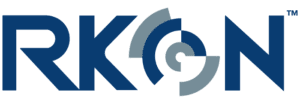The intricate interplay between tariffs and their impact on the global supply chain and economic outlook has profound implications for Private Equity (PE) firms. These ramifications extend across portfolio companies (portcos) and reshape the broader investment cycle, weaving a complex narrative of strategic adaptation, valuation pressures, and altered merger and acquisition (M&A) landscapes.
Understanding the Tariff Effect
Tariffs, essentially taxes levied on imported goods, serve as a critical lever in international trade policies. However, the uncertainty surrounding their imposition or alteration poses significant challenges for businesses worldwide. This unpredictability disrupts supply chains, inflating operational costs and compounding the complexity of long-term strategic planning. For PE firms, the primary concern lies in how these increased costs and strategic uncertainties trickle down to affect their investment valuations and the attractiveness of their portfolio companies in the market.
Increased Operational Costs and Valuation Pressures
Firstly, increased operational costs stemming from tariffs directly impact the bottom lines of portcos. These enhanced expenses can manifest in various forms, from higher costs of raw materials to inflated prices for components essential for production. For PE-owned companies, particularly those reliant on intricate supply chains spanning multiple countries, this could significantly erode margins.
This erosion of profitability, unless counteracted by operational efficiencies or market position improvements, will likely lead to lower valuations. PE firms thrive on acquiring, enhancing, and divesting companies at a profit. Tariff-induced cost pressures could, therefore, dampen the returns on investment (ROI), making certain deals less appealing.
Slowed M&A Activity and Extended Due Diligence
M&A activity is another arena feeling the aftershocks of tariff uncertainties. The looming threat of sudden changes in tariff policies makes it increasingly challenging to forecast future cash flows and operational performance accurately. As risk profiles of potential acquisitions become harder to gauge, PE firms may adopt a more cautious stance, slowing down the decision-making process.
Extended due diligence processes become a necessity rather than a precaution. PE investors, in their quest to uncover hidden costs or identify potential supply chain vulnerabilities, will delve deeper into the operational frameworks of potential acquisitions. This thoroughness, while beneficial for mitigating risk, delays deal closures and requires more resources, potentially cooling off some investment interests.
Impact on Both Portcos and the Investment Cycle
The effects of tariff uncertainties permeate through to both portcos and the broader investment cycle in several ways:
- Strategic Reconfigurations: Companies might need to reconfigure their supply chains, seeking alternative suppliers or considering nearshoring options to mitigate tariff impacts. This strategic pivot, while potentially beneficial in the long run, requires significant upfront investment and time, which could divert resources from other growth initiatives.
- Cautious Capital Deployment: PE firms might adopt more conservative capital deployment strategies, prioritizing investments in sectors or geographies less susceptible to tariff volatilities. This shift could lead to an underinvestment in potentially high-growth areas that are currently deemed high risk.
- Increased Focus on Operational Efficiency: There might be a heightened focus on driving operational efficiencies within portcos to cushion the impact of higher costs. While this could foster more robust and resilient businesses, it also means that operational performance improvement becomes an even more critical component of the value creation plan.
In conclusion, the uncertainties surrounding tariffs and their impact on the global supply chain and economic outlook present a multifaceted challenge for PE firms. The journey ahead requires a recalibrated approach to deal valuation, due diligence, and strategic planning, with an increased emphasis on operational efficiency and agility. As the tariff landscape evolves, adaptability and strategic foresight will be key in navigating the complexities of the global economic environment, ultimately shaping the future of PE investments.
Learn more about RKON’s Private Equity Services today.

